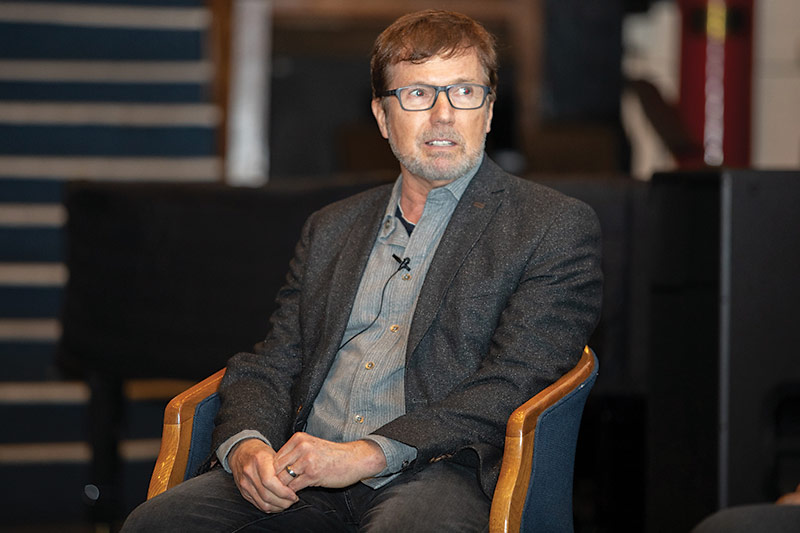
Richard Hall
Published:
For producer Richard Hall, supporting USC Shoah Foundation’s efforts to collect testimony related to the 1994 Genocide of the Tutsi in Rwanda is a natural extension of his work as a documentary filmmaker. “A good interview really connects you to the humanity of others. We are all the same, but we don’t really feel it until we have the chance to bridge the language barrier and understand context for another’s experience.”
Hall, whose wife is a survivor of the Rwandan Genocide, has helped fund the integration of testimonies from survivors of the Rwandan Genocide into the Visual History Archive. Hall believes that, much like the Holocaust, the Genocide of the Tutsi is a target for revisionism, which can be countered by the voices of those who lived the experience: “Truth is very fragile, if you don’t curate it, it gets distorted. Shoah Foundation is one of the few places in the world that is willing to keep this topic in the conversation.”
Beyond supporting USC Shoah Foundation’s efforts in Rwanda, Hall has committed his own time and money to furthering awareness of the Genocide. In July, Hall premiered The 600, a documentary he wrote and produced about the little-known story of 600 Rwanda Patriotic Army soldiers trapped behind enemy lines at the outset of violence in 1994 and their efforts to rescue civilians from the slaughter. In gathering interviews for the film, Hall worked closely with Rwandan authorities to gain access to the soldiers, many of whom had been reluctant or unwilling to share their stories previously. The 600 sold out its entire two-week run in Kigali, with President Paul Kagame attending the premiere, and Hall intends to seek international distribution in order to ensure that the film’s message finds a global audience who may not otherwise be aware of the events.
In his quest to use authentic voices to share the truth of the Rwandan Genocide, Hall sees parallels to his work and that of Shoah Foundation: “We must be vigilant stewards of testimony, challenging lies, restating truth, and honoring those who died. We need dozens of Shoah Foundations, but we have the one, so it’s important to support it.”